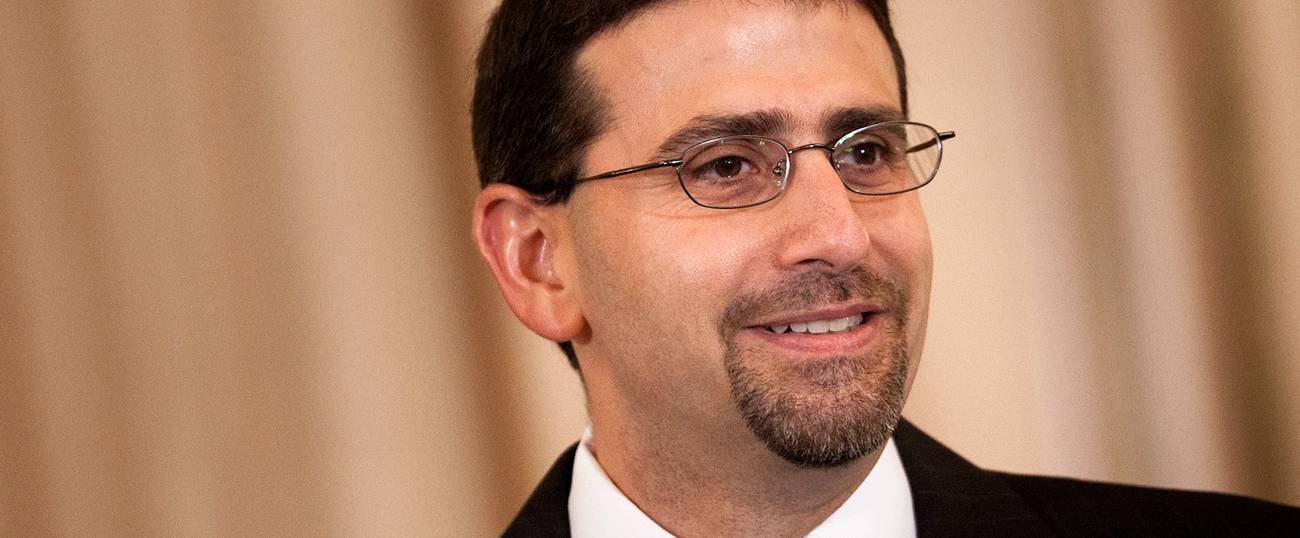Why Both Supporters and Critics of Obama on Israel Will Miss His Ambassador, Dan Shapiro
A pioneer of public diplomacy who steadily guided an often unsteady relationship, the envoy leaves big shoes to fill




Yesterday, Ambassador Daniel Shapiro held his final official meeting with Israeli prime minister Benjamin Netanyahu. It marked the close of a farewell tour for Obama’s handpicked envoy to the Jewish state, and the conclusion of a five-year ambassadorial term that saw tremendous tension in the U.S.-Israel relationship. But you’d never have known of that tumult from the cordial nature of Shapiro’s last rendezvous with Netanyahu, or from the warm send-off he has received in Israel even from many on the Israeli right who have strongly opposed the Obama administration’s policy in the region.
How did Shapiro manage this remarkable feat of diplomacy in a country as fractious and contentious as Israel? It wasn’t by deviating from his boss’s positions. There was never any daylight between Shapiro’s pronouncements and Obama’s, no matter how unpopular the stance. As ambassador, Shapiro forcefully defended the Iran deal and criticized settlement expansion. Indeed, he was instrumental in formulating some of those administration positions as an adviser to Obama on Middle East matters since 2007. But he nonetheless won over Israelis across the political spectrum through determined outreach and his demonstrable concern and care for the Jewish state.
A fluent Hebrew speaker, Shapiro didn’t restrict himself to traditional diplomatic channels. He quickly made himself a fixture in Israeli media, speaking to Israelis in their own language and in their own homes, from mainstream radio outlets to niche ultra-Orthodox Jewish networks. He posted regularly on Twitter and Facebook in Hebrew, interacting with everyday citizens online. He recorded Hebrew holiday greetings for YouTube. He even went on Matzav ha-Uma (“State of the Union”), one of Israel’s premier late night comedy shows, where he was interrogated by the hosts in rapid-fire Hebrew. Humor is perhaps the hardest thing for foreign language speakers to pick up, given the differences in cultural frames of reference and the difficulty of catching quips like double entendres, but Shapiro acquitted himself with aplomb.
Perhaps the best example of Shapiro’s creative approach to diplomacy was his participation in Israel’s International Bible Contest, or Chidon ha-Tanakh. In the final rounds of this annual competition—broadcast live across the country on Israeli Independence Day—celebrities, intellectuals, artists, and other Israelis of note pose questions about the Bible in specially-produced videos. But in 2014, Shapiro became the first foreign diplomat to participate in this endeavor. In the contest featurettes, the questioners typically relate some of their own personal story. In his video, Shapiro recounted how he had spent time in Israel in his youth, including studying at Hebrew University, and discussed his relationship to the Jewish tradition.
What made this such an ingenious bit of public diplomacy was that the primary audience of the Chidon is Israel’s religious Zionist community, many of whom constitute the backbone of the settler movement. In other words, the very people most likely to be watching this event were the people mostly likely to be at odds with the Obama administration. When they tuned in, they saw an American diplomat not only fluent in Hebrew but in the Torah—Shapiro is a practicing conservative Jew—speaking to them in their idiom. It’s an example of outreach to the unconverted that modern diplomats would do well to emulate.
This determination to reach those with opposing views carried into the twilight of Shapiro’s tenure: One of the last interviews he gave was to Arutz Sheva, the right-wing settler network.
Throughout all this, Shapiro was perhaps the only person who retained the trust of both President Obama and Prime Minister Netanyahu, an international diplomatic feat in its own right. Even as Israel and the United States butted heads, sometimes explosively, Shapiro managed to safeguard the relationship, put out fires, and keep lines of communication open.
With the election of Donald Trump and the nomination of his new Israel ambassador David Friedman, Shapiro now returns to life as a private citizen. He received permission from the State Department to remain in Israel while his children finish the school year, leaving big shoes to fill for his successor. One of the first things he did upon stepping down? Open up a personal Twitter feed, of course. Friends of Israel of all persuasions and politics would do well to follow along.
Yair Rosenberg is a senior writer at Tablet. Subscribe to his newsletter, listen to his music, and follow him on Twitter and Facebook.